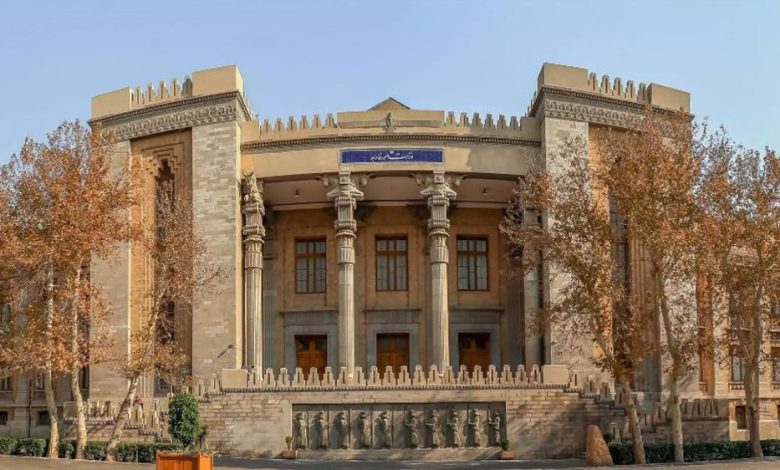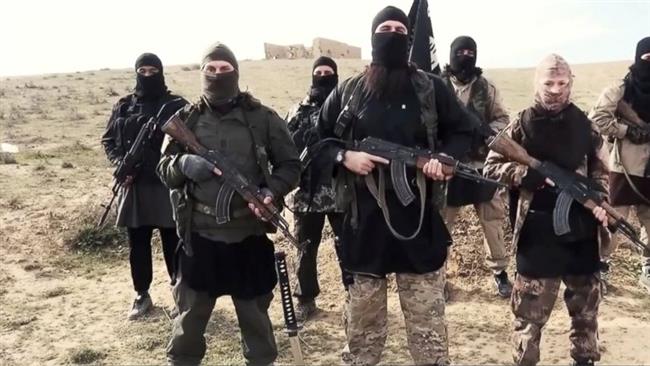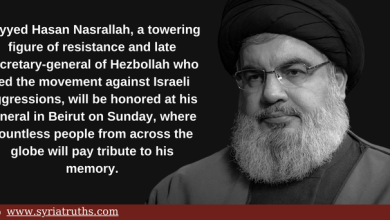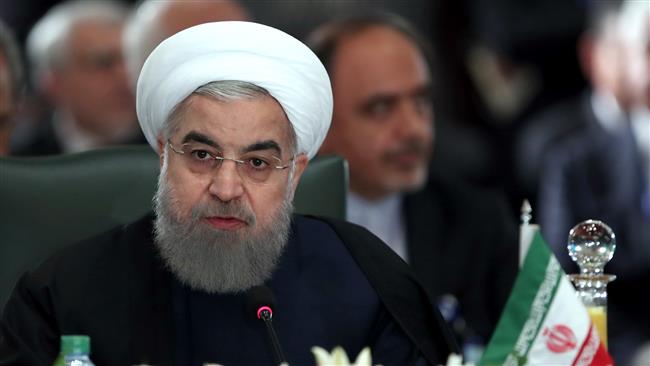Iran: US the leading enforcer of international sanctions and a significant violator of human rights
The Iranian Foreign Ministry has accused the United States of being the world's leading enforcer of sanctions, labeling it a principal and "systematic" violator of human rights.

The ministry released its annual report on Saturday, entitled “Violation of Human Rights by USA in 2024,” detailing its latest findings and assessments.
Reports indicate that the United States has significantly escalated its imposition of unilateral sanctions on nations including Iran, Syria, Russia, North Korea, Belarus, Venezuela, Cuba, Zimbabwe, and Nicaragua in recent years.
The report stated that the United States has engaged in significant and systematic violations of human rights through its unilateral actions. These include the escalation and implementation of economic sanctions without United Nations endorsement or legal exemptions, intended to pressure governments into altering their policies.
The report highlighted that unilateral sanctions imposed by the United States have significantly undermined the capacity and effectiveness of human rights protections in the targeted nations.
“The populations of embargoed nations have been significantly impacted in numerous ways, with numerous instances and evidence indicating violations of human rights throughout this ordeal,” the report stated.
The report highlights the significant impact of US sanctions on the “right to health and the right to life,” pointing out that the authorized trade in medicines, medical products, equipment, and spare parts frequently encounters numerous challenges. These difficulties arise from manufacturers’ and shippers’ “excessive compliance” with the sanctions, leading to hurdles in the distribution and availability of essential health supplies.
Despite persistent assertions and slogans from the United States concerning its dedication to human rights, the nation’s actions—both at home and abroad—indicate that American policymakers tend to address this matter according to their political agendas and interests.
The report underscored the broad scope of domestic anti-human rights activities in the United States, drawing attention to the increasing prevalence of gun culture, the unlawful application of force by law enforcement against minority groups, the violent treatment of asylum seekers and women, and the infringement of rights concerning children and Indigenous communities.
A recent report has highlighted the alarming frequency of mass shootings in the United States, describing them as a “deadly phenomenon.” It further emphasized that such incidents, particularly in schools and educational institutions, constitute a critical aspect of the broader gun violence crisis facing the nation.
Academic research has revealed that racial wealth disparities have contributed significantly to the widening economic gap between Black and White Americans, according to recent findings.
A recent report highlights that racial barriers continue to affect employment opportunities for workers of color, resulting in a higher likelihood of these individuals taking on lower-paying, unskilled jobs. Furthermore, the report reveals that the poverty rates for Black, Latino, and Native American families remain over two times higher than those of their white counterparts.
The report noted that “inflation and rising prices” have diminished individuals’ access to essential goods and services, including food, housing, and healthcare.
The ministry has highlighted racial discrimination within American correctional facilities as a significant concern, noting that over 75 percent of the inmate population at Angola prison in Louisiana, one of the United States’ largest prisons, comprises Black individuals.
The report highlighted the circumstances faced by Muslim inmates in New York State, particularly in Utica prison, describing it as “a case exemplifying the breach of human rights and religious freedoms.”
The ministry has called upon authorities and human rights organizations to prioritize the situation and implement measures to improve the conditions of these prisoners, aiming to prevent instances of religious discrimination.
The statement highlighted the United States’ alleged actions against human rights on the international stage, drawing attention to what it described as a contradiction between these actions and the country’s self-proclaimed role as a global leader in human rights advocacy.
The statement claims that the United States employs human rights as a pretext for intervention, allegedly aiding the Israeli government in infringing upon Palestinian human rights. It accuses the US of unilaterally imposing sanctions, supplying arms, and allegedly supporting terrorist activities.
A recent report highlights that the United States maintains its leading position in the global arms trade, accounting for 42 percent of the market. This figure significantly surpasses the combined total of several of its closest competitors.
According to the statement, the annual transfers, which encompass tens of billions of dollars in arms sales and military assistance, are pivotal instruments of U.S. foreign policy. They significantly influence political dynamics, conflict situations, and human rights conditions globally.
The Iranian ministry has emphasized that the United States’ “unwavering” backing of Israel’s actions, described as genocide against Palestinians in the Gaza Strip, has severely undermined international credibility and its professed commitment to a rules-based global order.
A recent report reveals that human rights experts, both domestically and internationally, have issued stern criticism of the United States. The report highlights that Washington’s collaboration with the Tel Aviv administration is perceived as implicating the U.S. in significant human rights violations against Palestinians.
According to the report, the United States has exercised its veto power on more Security Council resolutions criticizing Israel than any other member nation.
Between 1945 and April 18, 2024, the United States has exercised its veto power on Security Council resolutions on 92 occasions, with 47 of those instances concerning the Zionist regime.
A recent report indicates that the majority of these resolutions are intended to create a framework for achieving peace in the long-standing conflict between Palestine and Israel.
The report indicates that the majority of these resolutions called on the Israeli government to comply with international laws, uphold the Palestinian people’s right to self-determination, and support the establishment of a Palestinian state.
The statement also expressed strong criticism of the Israeli administration for its displacement of Palestinians and ongoing settlement developments, it reported.




